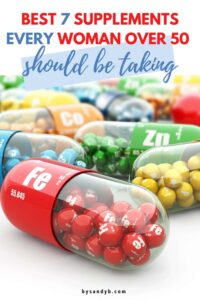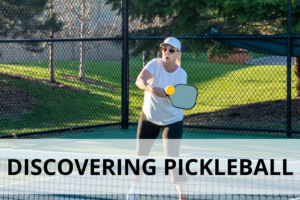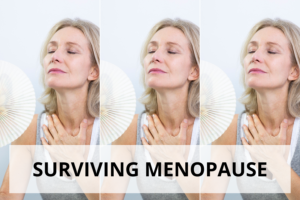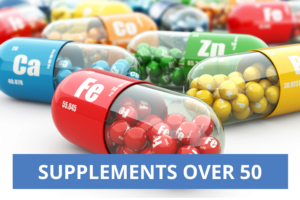
7 Supplements Every Woman Over 50 Should Take for Optimal Health

Navigating the world of supplements can be daunting, especially as we age. As women over 50, ensuring our bodies get the necessary nutrients to support our health and well-being becomes even more critical. Eating a balanced diet is challenging, and knowing which supplements to choose can be overwhelming.
I've been there and understand the struggle to find the right supplements to support our changing needs. After careful research, here are my choices for the 7 best supplements and why they are essential to us gals over 50.
1. Calcium
Calcium is crucial for maintaining strong bones, but getting enough from diet alone can be difficult, especially as we age.
Why it's important:
Our bone density decreases as we age, making us more susceptible to fractures and osteoporosis. Calcium is essential for maintaining bone health and strength. It also plays a role in nerve function, muscle contraction, and blood clotting. Without enough calcium, our bodies will start to leach it from our bones, weakening them over time.
Who needs it:
Women over 50 are at a higher risk of bone density loss due to menopause, which decreases estrogen levels, leading to weaker bones. Postmenopausal women should be particularly vigilant about their calcium intake.
Recommended daily intake:
The recommended daily intake for women over 50 is 1,200 mg. This can come from a combination of diet and supplements. Foods rich in calcium include dairy products, leafy greens, and fortified foods. However, many women find it challenging to get enough calcium through diet alone, making supplementation necessary.
Here is my pick for the best Calcium Supplement for women over 50:
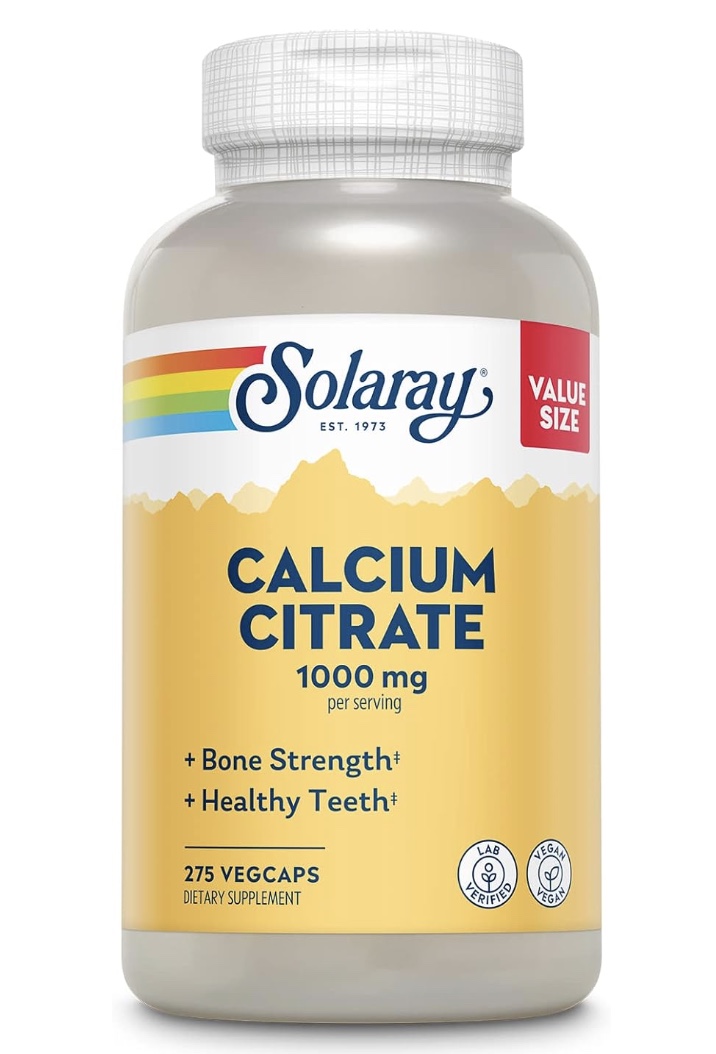
Research:
Studies show that adequate calcium intake can significantly reduce the risk of fractures in older women. A meta-analysis published in the British Medical Journal found that calcium supplementation, particularly when combined with vitamin D, effectively reduces the risk of fractures in postmenopausal women (BMJ, 2010).
Contraindications:
High calcium intake can interfere with absorbing other minerals, such as zinc and iron. It may also lead to kidney stones in susceptible individuals. Those taking certain medications, such as bisphosphonates or certain antibiotics, should consult their healthcare provider before starting calcium supplements. Additionally, excessive calcium intake can cause constipation and may increase the risk of cardiovascular events in some individuals.
2. Vitamin D
Vitamin D is vital for calcium absorption and immune function, but many women over 50 are deficient due to limited sun exposure.
Why it's important:
Vitamin D helps our bodies absorb calcium, which is crucial for maintaining bone health. It also supports the immune system, reducing the risk of infections and chronic diseases. Additionally, vitamin D plays a role in muscle function and mood regulation, helping to prevent depression and improve overall well-being.
Who needs it:
Women over 50, especially those who live in northern latitudes, have limited sun exposure, or have darker skin tones, are at a higher risk of vitamin D deficiency. As we age, our skin becomes less efficient at synthesizing vitamin D from sunlight, making supplementation even more important.
Recommended daily intake:
The recommended daily intake is 600-800 IU, with some experts suggesting up to 1,000 IU for older adults to maintain optimal blood levels. It's best to have your vitamin D levels checked by a healthcare provider to determine the appropriate dosage for your personal needs.
Here is my pick for the best Vitamin D Supplement for women over 50:
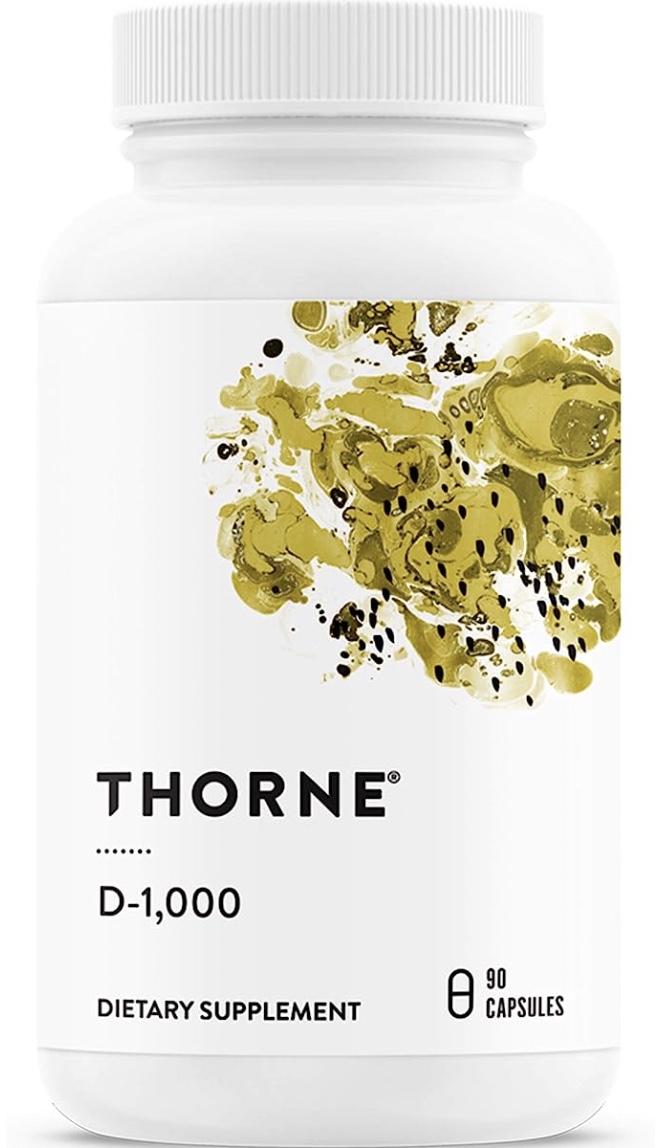
Research:
Research indicates that adequate vitamin D levels can improve bone density and reduce the risk of falls. A study published in the Journal of Clinical Endocrinology & Metabolism found that vitamin D supplementation improved muscle strength and reduced the risk of falls in older adults (Endocrine Society, 2011). Another American Journal of Clinical Nutrition study found that vitamin D supplementation can reduce the risk of fractures in postmenopausal women (AJCN, 2007).
Contraindications:
Excessive vitamin D can cause toxicity, leading to hypercalcemia (high calcium levels in the blood), which can affect heart and kidney function. Symptoms of vitamin D toxicity include nausea, vomiting, weakness, and serious complications such as kidney damage. Those with conditions such as sarcoidosis, tuberculosis, or lymphoma should consult their healthcare provider before taking vitamin D supplements, as these conditions can cause increased sensitivity to vitamin D.
3. Omega-3 Fatty Acids
Omega-3s are essential for heart health, but many women over 50 do not get enough from diet alone.
Why it's important:
Omega-3 fatty acids, particularly EPA and DHA, support heart health by reducing inflammation, lowering blood pressure, and decreasing triglyceride levels. They also improve brain function and may reduce the risk of cognitive decline and Alzheimer's disease. Omega-3s are known for their anti-inflammatory properties, which can help manage chronic conditions such as arthritis and promote overall cardiovascular health.
Who needs it:
Women over 50, especially those with a history of heart disease, cognitive decline, or inflammatory conditions, can benefit from omega-3 supplementation. Those who do not consume enough fatty fish or other omega-3 rich foods may also need to consider supplements.
Recommended daily intake:
The American Heart Association recommends 250-500 mg of EPA and DHA daily. Under the guidance of a healthcare provider, a higher dose of up to 1,000 mg per day may be recommended for those with heart disease.
Here is my pick for the best Omega-3 Supplement for women over 50:
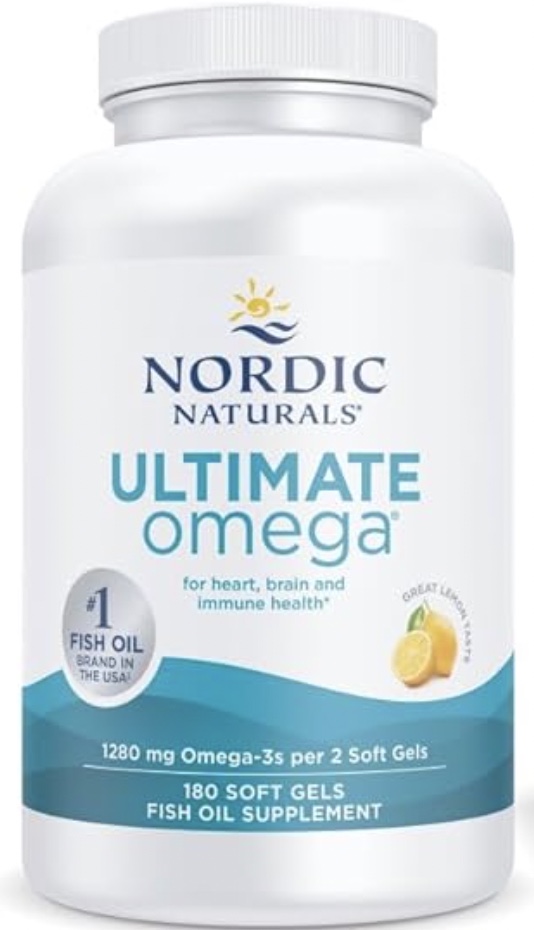
Research:
Studies show that omega-3s can lower the risk of heart disease and improve cognitive function in older adults. A study published in the Journal of the American College of Cardiology found that omega-3 supplementation can reduce the risk of cardiovascular events in high-risk individuals (JACC, 2019). Another study in Neurology found that higher levels of omega-3s were associated with larger brain volumes in old age, suggesting a protective effect against brain aging (Neurology, 2014).
Contraindications:
Omega-3s can thin the blood, so those taking blood-thinning medications such as warfarin or aspirin should consult their doctor. High doses can also cause gastrointestinal issues, including nausea and diarrhea. It is essential to discuss any potential interactions with your healthcare provider, especially if you have a bleeding disorder or are scheduled for surgery.
4. Folate (Folic Acid)
Folate is essential for cell growth and metabolism, but its absorption decreases with age.
Why it's important:
Folate supports DNA synthesis and red blood cell formation and prevents certain types of anemia. It also helps lower homocysteine levels, reducing the risk of cardiovascular diseases. Folate is crucial for maintaining cognitive function and may help prevent age-related cognitive decline.
Who needs it:
Women over 50, especially those with poor diets, absorption issues, or increased homocysteine levels, should consider folate supplementation. Folate deficiency is more common in older adults due to reduced dietary intake and impaired absorption.
Recommended daily intake:
The recommended daily intake is 400 mcg, which can be obtained through a combination of diet and supplements. Foods rich in folate include leafy greens, legumes, and fortified cereals.
Here is my pick for the best Folate Supplement for women over 50:
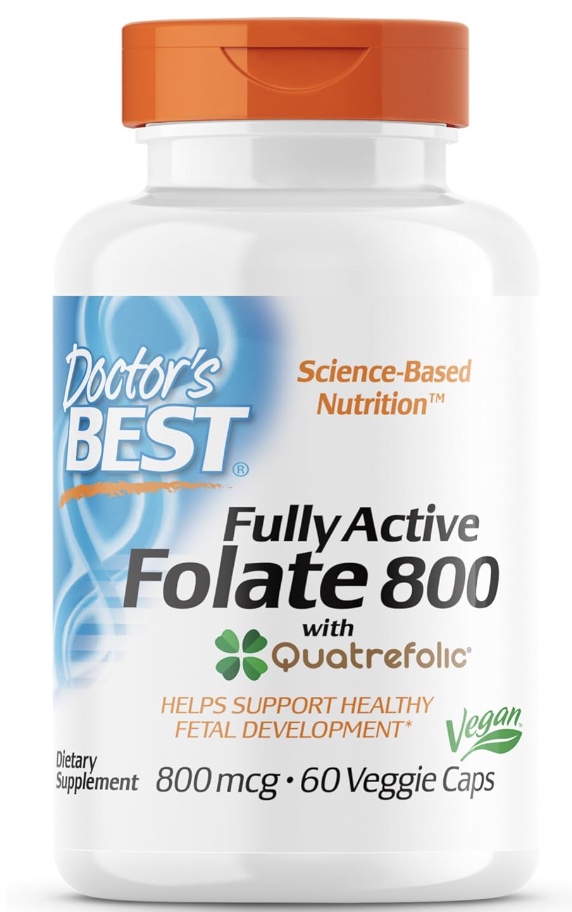
Research:
Adequate folate levels have been linked to lower homocysteine levels, reducing the risk of cardiovascular diseases. A study published in the American Journal of Clinical Nutrition found that folic acid supplementation can reduce the risk of stroke by lowering homocysteine levels (AJCN, 2006). Another study in The Lancet showed that folate supplementation can improve cognitive function in older adults (Lancet, 2007).
Research:
Adequate folate levels have been linked to lower homocysteine levels, reducing the risk of cardiovascular diseases. A study published in the American Journal of Clinical Nutrition found that folic acid supplementation can reduce the risk of stroke by lowering homocysteine levels (AJCN, 2006). Another study in The Lancet showed that folate supplementation can improve cognitive function in older adults (Lancet, 2007).
Contraindications:
Excessive folate can mask vitamin B12 deficiency, leading to neurological damage if not addressed. Those taking medications such as methotrexate or antiepileptics should consult their healthcare provider before starting folate supplements. High doses of folate can also cause gastrointestinal issues such as bloating and nausea.
5. Iron
Iron is vital for energy and transporting oxygen in the blood, but needs may change after menopause.
Why it's important:
Iron supports the production of hemoglobin, which carries oxygen in the blood. It prevents iron deficiency anemia, which can cause fatigue, weakness, and impaired cognitive function. Adequate iron levels are essential for maintaining energy levels and overall health.
Who needs it:
Women over 50 may need less iron post-menopause due to the cessation of menstruation. However, they should monitor their levels to avoid deficiency, especially if they have conditions that cause blood loss or poor absorption. Iron deficiency is common in older adults due to dietary changes and chronic health conditions.
Recommended daily intake:
The recommended daily intake is 8 mg, but this can vary based on individual needs. It is important to get your iron levels checked regularly and adjust your intake accordingly. Iron-rick foods include red meat, beans, lentils, and fortified cereals.
Here is my pick for the best Iron Supplement for women over 50:
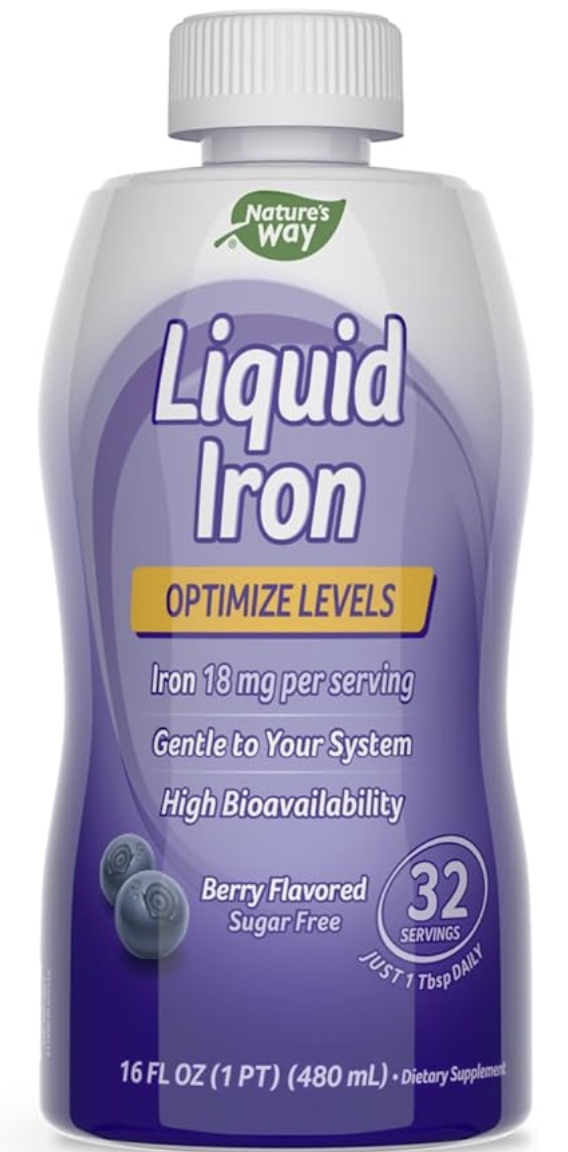
Research:
Studies highlight that maintaining adequate iron levels can improve energy and cognitive function. A study in the Journal of Nutrition found that iron supplementation improved cognitive performance in iron-deficient women (JN, 2001). Another study published in the American Journal of Clinical Nutrition found that iron supplementation can reduce fatigue in non-anemic women with low iron stores (AJCN, 2003).
Contraindications:
Excessive iron can cause constipation and interfere with the absorption of other nutrients. It may also be harmful to those with hemochromatosis or chronic conditions such as liver disease. Those taking medications like proton pump inhibitors or antacids should consult their healthcare provider before taking iron supplements. high doses of iron can also cause gastrointestinal issues such as nausea and stomach pain.
6. Magnesium
Magnesium is crucial for muscle and nerve function, but many of us don't get enough through diet alone.
Why it's important:
Magnesium supports muscle function and nerve health and helps regulate blood pressure. It also affects bone health, energy production, and maintaining a healthy heart rhythm. Magnesium is essential for over 300 biochemical reactions in the body, making it a vital nutrient for overall health.
Who needs it:
Women over 50, especially those experiencing muscle cramps, insomnia, or high blood pressure, may benefit from magnesium supplementation. Magnesium deficiency is common among older adults due to decreased dietary intake, reduced absorption, and increased excretion.
Recommended daily intake:
The recommended daily intake is 320 mg, which can be obtained through a combination of diet and supplements. Foods rich in magnesium include leafy green vegetables, nuts, seeds and whole grains.
Here is my pick for the best Magnesium Supplement for women over 50:

Research:
Research shows that magnesium supplementation can improve sleep quality and reduce the risk of heart disease. A study published in the Journal of the American Geriatrics Society found that magnesium supplementation improved sleep quality in older adults (JAGS, 2012). Another study in BMC Medicine found that higher magnesium intake was associated with a lower risk of stroke (BMC Medicine, 2013).
Contraindications:
Excessive magnesium can cause diarrhea and affect those with kidney problems. Those taking diuretics, antibiotics, or heart medications should consult their healthcare provider before starting magnesium supplements. High doses of magnesium can also cause gastrointestinal issues such as cramping and bloating.
7. Lutein
Lutein is essential for eye health, but our ability to absorb it decreases with age.
Why it's important:
Lutein helps protect against age-related macular degeneration (AMD) and supports overall eye health. It acts as an antioxidant, protecting the eyes from oxidative stress and blue light damage. Lutein is also beneficial for skin health, helping to protect against UV damage and improve skin hydration and elasticity.
Who needs it:
Women over 50, particularly those at risk for, or experiencing vision problems, should consider lutein supplementation. As we age, the risk of developing eye conditions such as AMD and cataracts increases, making lutein an essential nutrient for eye health.
Recommended daily intake:
The recommended daily intake is 10 mg, which can be obtained through a combination of diet and supplements. Leafy green vegetables such as spinach, kale, corn, and eggs are rich in lutein.
Here is my pick for the best Lutein Supplement for women over 50:
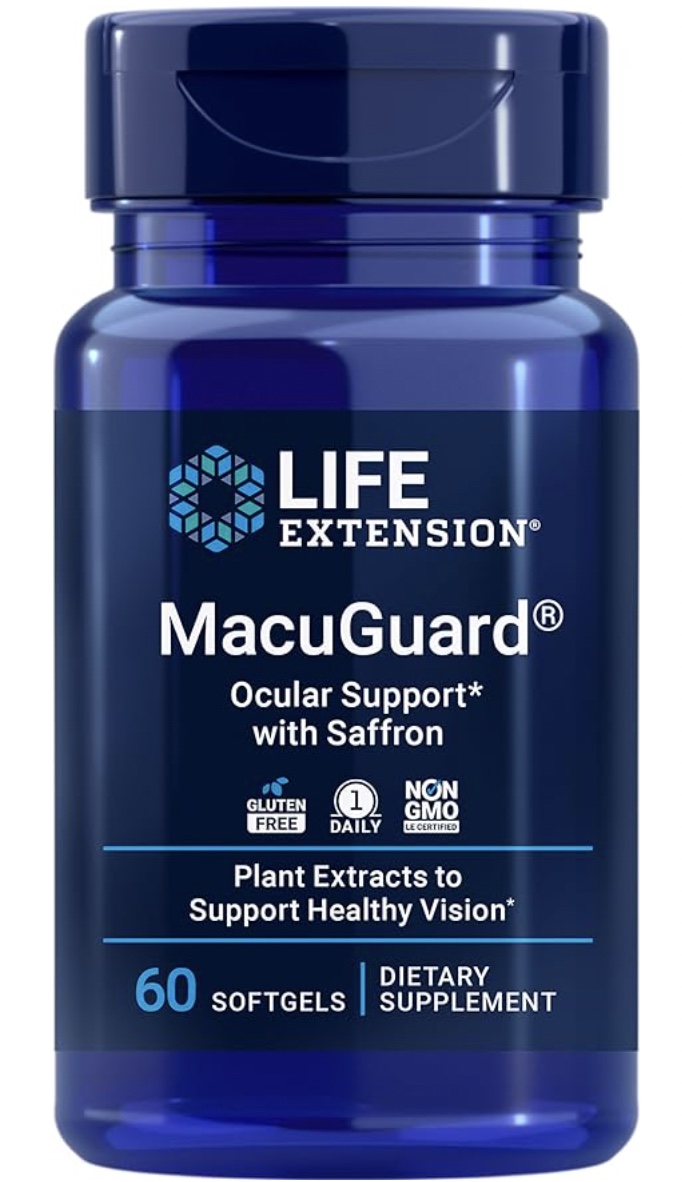
Research:
Studies suggest that lutein can improve visual function and protect against eye diseases. A study published in the American Journal of Clinical Nutrition found that lutein supplementation enhanced visual performance in older adults with AMD (AJCN, 2017). Another study in JAMA Ophthalmology found that higher dietary intake of lutein and zeaxanthin was associated with a reduced risk of advanced AMD (JAMA Ophthalmology, 2013).
Contraindications:
Lutein is generally safe, but you should discuss high doses with a healthcare provider. There are no significant contraindications, but those with specific eye conditions or taking medications for eye health should consult their doctor. Excessive intake of lutein can cause a harmless yellowing of the skin, known as carotenemia.
Conclusion
Understanding the importance of these supplements and incorporating them into our daily routine can better support our health and well-being as we age. Remember, it's always best to consult a healthcare professional before starting any new supplement regimen. Each of these supplements plays a vital role in maintaining our health and vitality, helping us to enjoy life to the fullest as we navigate beyond 50!
This article aims to provide valuable, easy-to-understand information to help you make informed decisions about your health. Taking the right supplements ensures your body gets the nutrients it needs to stay strong and healthy. If you have any questions or concerns about starting a new supplement, don't hesitate to contact your healthcare provider for personalized advice.
FAQ: Supplements for Women Over 50
Why do women over 50 need different supplements than younger women?
As women age, their nutritional needs change. Postmenopausal women experience changes in hormone levels that can affect bone density, health health, and overall metabolism. Supplements can help address these specific needs and support healthy aging.
How do I know if I need to take a supplement?
It is best to consult with a healthcare provider who can assess your nutritional status through dietary analysis, health history, and possibly blood tests. They can recommend specific supplements based on your individual needs.
Can I get all the nutrients I need from food alone?
While a balanced diet is essential, getting nutrients from food alone can be challenging, especially as we age. Factors such as decreased absorption, dietary restrictions, and lifestyle can benefit supplementation.
Are there any risks associated with taking supplements?
Yes, taking supplements can have risks, especially if taken in excess or without proper guidance. Some supplements can interact with medications or cause side effects. It's important to follow recommended dosages and consult with a healthcare provider.
What is the best time of day to take my supplements?
The best time can vary depending on the supplement. For example, calcium and magnesium are often taken in the evening because they can promote relaxation. Omega-3s and multivitamins are typically taken with meals to improve absorption. Always check the label or consult with a healthcare provider.
Can I take all my supplements together, or should they be spaced throughout the day?
Some supplements can be taken together, while others should be spaced out to avoid interactions. For example, calcium can interfere with iron absorption, so taking them at different times is best. Consult with a healthcare provider for personalized advice.
How long will it take to see the benefits of taking supplements?
The time it takes to see benefits can vary. Some people may notice improvements within a few weeks, while others might take several months. Consistency is vital, and following the recommended dosage and duration is essential.
Should I prioritize any natural food sources to get these nutrients?
Yes! Prioritizing nutrient-rich foods is always beneficial. For example, dairy products and leafy greens are good sources of calcium, fatty fish provide omega-3s, and sunlight helps with vitamin D. However, supplements can help fill any nutritional gaps.
Should I take a multivitamin or individual supplements?
The answer depends on your specific needs. A multivitamin can be convenient and provide a broad range of nutrients, but individual supplements can be more effective for targeting specific deficiencies. Your healthcare provider can help you decide the best approach for you.
The aim of this article is to provide women over 50 information about the supplements needed as we age. I hope you found this information helpful. Remember, always consult your healthcare provider about your unique needs.
If you have any questions or comments, I would love to hear from you! Reach out anytime.
